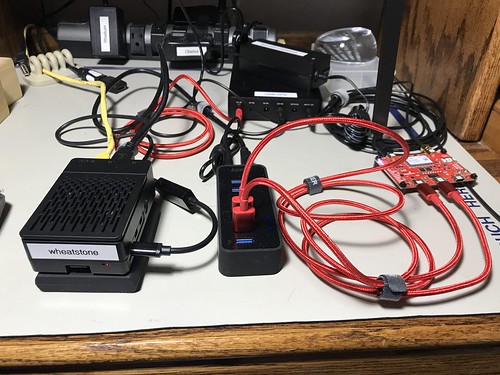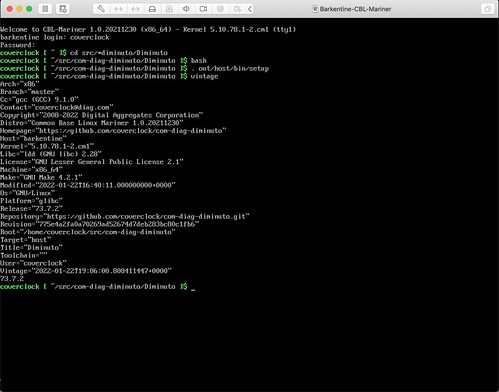Raspberry Pi Running From An SSD
The latest Raspberry Pi board - the 4B - introduced a firmware-based boot loader than can be easily configured to boot from something other than the resident micro SD card. It was pretty easy to configure it to boot from a USB-attached SSD.
Here's an image of one of my Raspberry Pi 4B SBCs sitting on top of a Samsung T5 that it booted from and is running off of. (The T5s have since been replaced by the newer Samsung T7.)
I also found some instructions to enable the SATA TRIM command on the SSD so that the OS could get sectors on the SSD erased as a background activity.
It's not perfect: the SSD pulls enough power that I had to add an externally powered USB hub to run other stuff like GNSS receivers and LTE-M radios. But I'm running a full blown Ubuntu OS instead of Raspberry Pi OS (a.k.a. Raspbian). I run Ubuntu elsewhere on a Raspberry Pi using a micro SD card, but this is a lot more spacious, not to mention a lot faster.
Microsoft's Linux Distribution
Remarkably, Microsoft has created its own Linux distro for the x86_64 target: the Fedora-ish CBL-Mariner (for Common Base Linux). It's intended as an internal Linux distro for Microsoft's Azure cloud infrastructure. I got it running as a virtual machine under VMware Fusion on my old desktop Mac. It works pretty well; I got my Diminuto C library and my Hazer GPS project running on it with very little effort.
It's not perfect: weirdly, it can't display the Unicode degree symbol, which is used in a couple of places in my Hazer code (gotta believe this is just a Unicode font issue). And the IPv6 unit tests in Diminuto don't pass 100% (current thinking this has nothing to do with CBL-Meridian, but with a change I made in my company web site). But otherwise I'm processing input as usual from a GNSS USB dongle.
Update 2022-01-25: The degree symbol display was a day-one bug in my Hazer code, related to setting the locale, that didn't manifest under Debian-based OSes. (If I had followed my own documentation, this would not have occurred.) The IPv6 issues were breakage caused by my own changes in the Digital Aggregates web site to support HTTPS and were unrelated to either CBL-Meridian or support in Diminuto for IPv6.



No comments:
Post a Comment